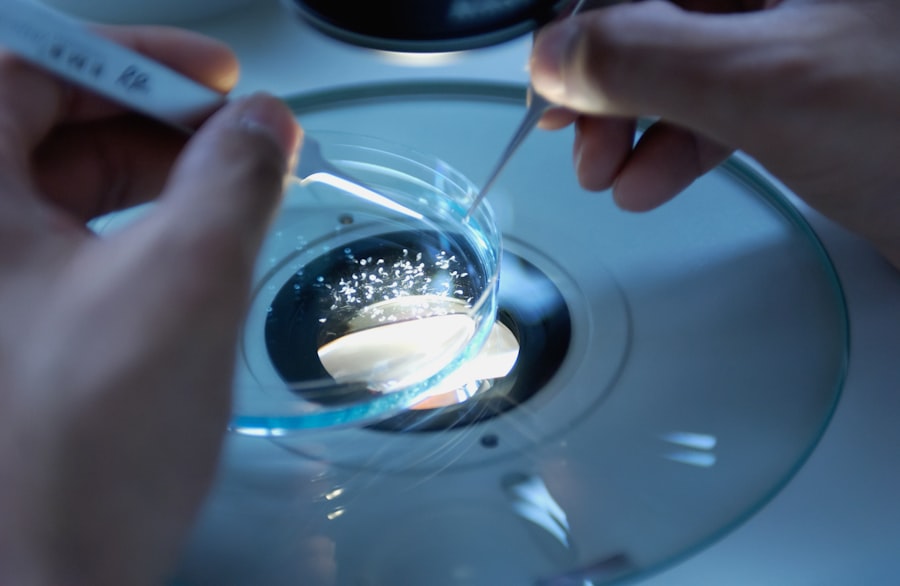Laser hair removal has become a popular choice for individuals seeking a long-term solution to unwanted hair. This method utilizes concentrated beams of light to target and destroy hair follicles, effectively reducing hair growth over time. The procedure is often favored for its precision and speed, allowing for the treatment of various body areas, including the face, legs, and bikini line.
As you consider this option, it’s essential to understand how the technology works and what to expect during the process. The laser emits a specific wavelength of light that is absorbed by the pigment in the hair follicles. This absorption generates heat, which damages the follicle and inhibits future hair growth.
While many people experience satisfactory results after a series of sessions, it’s important to note that individual experiences may vary based on factors such as hair color, skin type, and hormonal influences. As you contemplate laser hair removal, you may find yourself weighing its benefits against potential concerns, particularly regarding its impact on fertility.
Key Takeaways
- Laser hair removal is a popular method of removing unwanted hair by using concentrated beams of light to destroy hair follicles.
- There is no conclusive evidence to suggest that laser hair removal has a direct impact on fertility, but more research is needed to fully understand the relationship.
- Research on the effects of laser hair removal on fertility is limited, and existing studies have produced conflicting results.
- Potential risks and side effects of laser hair removal include skin irritation, pigmentation changes, and in rare cases, scarring.
- Women trying to conceive should consult with a medical professional before undergoing laser hair removal to discuss any potential risks and consider alternative hair removal methods.
The Relationship Between Laser Hair Removal and Fertility
When considering laser hair removal, you might wonder about its implications for fertility. Many women are understandably cautious about any procedure that could potentially affect their reproductive health. The relationship between laser hair removal and fertility is a topic that has garnered attention, leading to questions about whether this cosmetic treatment could interfere with your ability to conceive.
It’s crucial to recognize that laser hair removal primarily targets hair follicles located in the skin’s outer layers. The procedure does not penetrate deeply enough to affect reproductive organs or hormonal balance directly. However, the concern often arises from the proximity of treatment areas to reproductive organs, particularly when treating areas like the abdomen or bikini line.
As you explore this topic further, you may find that understanding the science behind the procedure can help alleviate some of your concerns.
Research and Studies on the Effects of Laser Hair Removal on Fertility

Numerous studies have sought to clarify the relationship between laser hair removal and fertility. Research indicates that there is no direct evidence linking laser hair removal to infertility or reproductive issues. Most studies focus on the safety of the procedure and its effects on skin health rather than its impact on fertility.
As you delve into this research, you may find reassurance in the findings that suggest laser hair removal is a safe option for women who are considering starting a family. One study published in a reputable dermatology journal examined the effects of laser treatments on various skin types and concluded that there were no significant adverse effects on reproductive health. The researchers emphasized that while some women may experience temporary skin reactions, these do not extend to fertility concerns.
As you review these studies, it’s essential to consider the broader context of your health and any underlying conditions that may influence your fertility journey.
Potential Risks and Side Effects of Laser Hair Removal
| Category | Potential Risks and Side Effects |
|---|---|
| Skin Irritation | Redness, swelling, and discomfort in the treated area |
| Pigment Changes | Lightening or darkening of the skin in the treated area |
| Burns | Blistering, crusting, or scarring in severe cases |
| Scarring | Permanent scarring or changes in skin texture |
| Eye Injury | Damage to the eyes if proper eye protection is not used during treatment |
| Unwanted Hair Growth | Stimulation of hair growth in adjacent areas |
While laser hair removal is generally considered safe, it is not without potential risks and side effects. As you contemplate this procedure, it’s important to be aware of what you might encounter. Common side effects include temporary redness, swelling, and discomfort in the treated area.
These reactions typically subside within a few hours to a few days, but they can be concerning if you are unprepared for them. In rare cases, more severe side effects can occur, such as blistering or changes in skin pigmentation. These risks can be influenced by factors such as skin type, hair color, and the skill of the practitioner performing the procedure.
As you weigh your options, consider discussing these potential side effects with your provider to ensure you have a comprehensive understanding of what to expect.
Precautions and Considerations for Women Trying to Conceive
If you are actively trying to conceive or plan to do so in the near future, there are several precautions you should consider before undergoing laser hair removal. While current research suggests no direct link between the procedure and fertility issues, it’s wise to approach any cosmetic treatment with caution during this sensitive time in your life. You may want to consult with your healthcare provider about your plans for laser hair removal and how they align with your fertility goals.
Timing can also play a significant role in your decision-making process. If you are in the early stages of trying to conceive, it might be prudent to postpone any elective procedures until after you have successfully achieved pregnancy. This approach allows you to focus on your reproductive health without introducing additional variables that could complicate your journey.
Alternative Hair Removal Methods for Women Concerned About Fertility

Traditional Options
Traditional options such as shaving, waxing, and depilatory creams can provide temporary solutions without the same level of commitment as laser treatments. Each method has its pros and cons, so it’s essential to evaluate what works best for your lifestyle and preferences.
Shaving: Convenience and Accessibility
Shaving is one of the most common methods due to its convenience and accessibility. However, it requires frequent maintenance and can lead to skin irritation if not done carefully.
Waxing and Depilatory Creams: Longer-Lasting Results and Potential Drawbacks
Waxing offers longer-lasting results but can be painful and may cause ingrown hairs. Depilatory creams provide a chemical solution for hair removal but can also irritate sensitive skin. As you explore these alternatives, consider how each method aligns with your comfort level and overall health goals.
Consulting with a Medical Professional Before Undergoing Laser Hair Removal
Before making any decisions about laser hair removal, it’s crucial to consult with a medical professional who specializes in dermatology or cosmetic procedures. A qualified practitioner can assess your individual circumstances, discuss your concerns about fertility, and help you make an informed choice based on your health history and goals. This consultation is an opportunity for you to ask questions and gain clarity on any uncertainties you may have.
During your consultation, be open about your plans for starting a family and any specific concerns regarding fertility. A knowledgeable provider will take these factors into account when discussing treatment options and may suggest alternative methods if they believe laser hair removal is not suitable for you at this time. This collaborative approach ensures that you feel confident in your decision-making process.
Making Informed Decisions About Laser Hair Removal and Fertility
In conclusion, navigating the world of laser hair removal while considering your fertility goals requires careful thought and research. While current studies indicate no direct link between laser hair removal and infertility, it’s essential to approach any cosmetic procedure with caution—especially when planning for pregnancy. By consulting with medical professionals and exploring alternative hair removal methods, you can make informed decisions that align with your health priorities.
Ultimately, understanding the science behind laser hair removal and its potential effects on your body will empower you as you weigh your options.
There is a lot of misinformation surrounding laser hair removal and its potential impact on fertility. According to a recent article on inlaserhairremoval.
In fact, many experts agree that the procedure is safe and effective for most individuals. It’s important to consult with a qualified professional before undergoing any treatment to ensure that it is the right choice for you.
FAQs
What is laser hair removal?
Laser hair removal is a cosmetic procedure that uses a concentrated beam of light (laser) to remove unwanted hair. The laser targets the pigment in the hair follicles, damaging them and inhibiting future hair growth.
Does laser hair removal cause fertility issues?
There is no scientific evidence to suggest that laser hair removal causes fertility issues. The laser used in the procedure only penetrates the skin and does not reach or affect the reproductive organs.
Are there any risks or side effects associated with laser hair removal?
While laser hair removal is generally considered safe, there are some potential risks and side effects, such as skin irritation, redness, and changes in skin pigmentation. It is important to consult with a qualified and experienced practitioner to minimize these risks.
Can laser hair removal be performed on pregnant women?
It is generally recommended to avoid laser hair removal during pregnancy, as the effects of the procedure on the developing fetus are not well-studied. It is best to wait until after pregnancy and breastfeeding to undergo laser hair removal.
Is it safe to undergo laser hair removal while trying to conceive?
There is no evidence to suggest that laser hair removal has any impact on fertility or the ability to conceive. However, if you have concerns, it is best to consult with a healthcare professional before undergoing the procedure.






